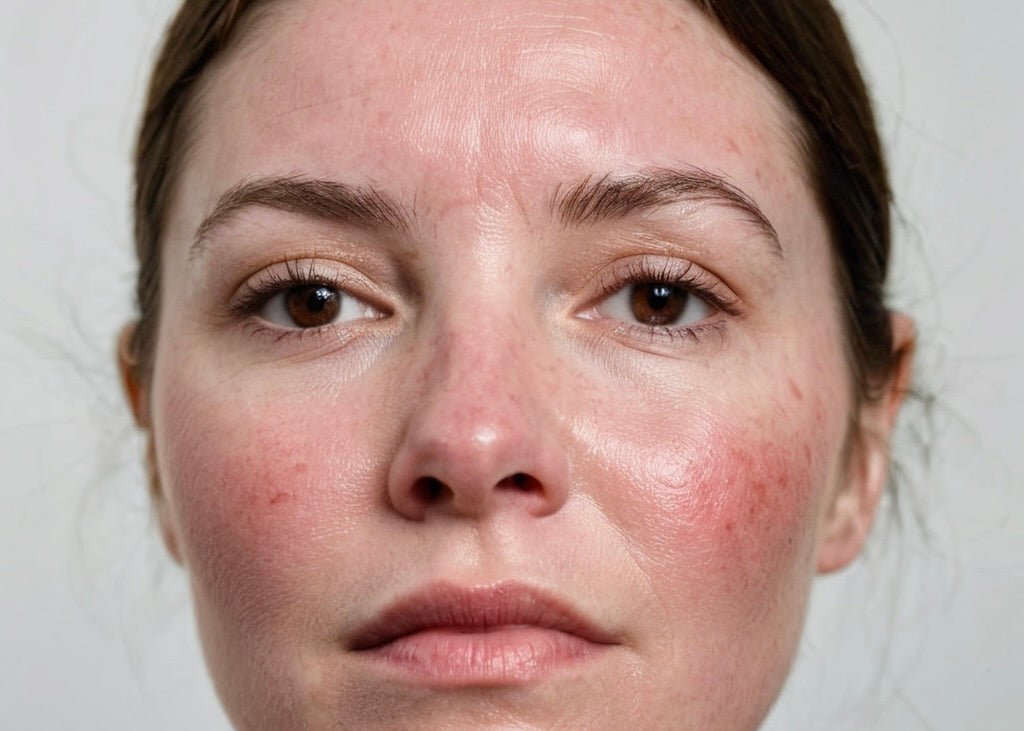
Can You Apply Retinol on Open Acne? What to Know Before Using
Retinol, a derivative of vitamin A, has been hailed as a miracle worker. It's known for its ability to accelerate skin renewal and reduce the appearance of wrinkles, fine lines, and age spots for a more vibrant, youthful-looking complexion. But what about its use on acne? Specifically, can you apply retinol on open acne? Let's explore this topic in depth.
The Science Behind Retinol
Retinol, also known as retinoid, works by promoting rapid cell turnover. This process helps to unclog pores, reduce fine lines, and even out skin discoloration. It also stimulates collagen production, which can give your skin a firmer, smoother texture.
However, retinol is a potent ingredient. It can cause skin irritation, including dryness, peeling, and redness, especially in higher concentrations and during the initial stages of use. Therefore, it's essential to understand how to use it correctly to reap its benefits without causing unnecessary harm to your skin.
Applying Retinol on Open Acne
Applying retinol on open acne can be a controversial topic. On one hand, retinol's ability to speed up cell turnover can help clear up acne by preventing dead skin cells from clogging pores. On the other hand, applying retinol directly to open acne can potentially cause further irritation and delay the healing process.
Retinol can be drying and irritating, especially on inflamed or sensitive skin. Applying it on open acne, which is essentially an open wound, can exacerbate these side effects. It can potentially cause more redness, dryness, and peeling, which might not be ideal if you're trying to heal acne.
When to Use Retinol
If you're considering using retinol for acne, it's best to use it as a preventative measure rather than a spot treatment. This means applying it regularly on your entire face, rather than just on active breakouts. This can help prevent new acne from forming by keeping your pores clear.
It's also important to start slow when introducing retinol into your skincare routine. Start with a lower concentration and gradually increase it as your skin builds tolerance. This can help minimize potential irritation and side effects.
When Not to Use Retinol
If you have open or inflamed acne, it might be best to avoid using retinol until your skin has healed. Applying retinol on open acne can potentially cause more harm than good by irritating the skin and delaying the healing process.
Also, if you have sensitive skin or skin conditions like rosacea or eczema, you might want to avoid retinol altogether or use it with caution, as it can potentially exacerbate these conditions.
Natural and Sustainable Alternatives to Retinol
While retinol can be beneficial for many people, it's not the only solution for achieving clear, healthy skin. There are many natural and sustainable alternatives that can be just as effective, without the potential side effects of retinol.
These alternatives can be a great option if you have sensitive skin, open acne, or simply prefer to use natural and sustainable skincare ingredients. Here are a few options:
- Bakuchiol: Often referred to as the natural alternative to retinol, bakuchiol is a plant-based ingredient that offers similar benefits without the side effects. It can help stimulate collagen production, reduce the appearance of fine lines and wrinkles, and improve skin elasticity.
- Niacinamide: This form of vitamin B3 can help reduce inflammation, regulate oil production, and improve skin texture and tone. It's a great option for those with acne-prone skin.
- Alpha Hydroxy Acids (AHAs): AHAs like glycolic acid and lactic acid can help exfoliate the skin, remove dead skin cells, and improve skin texture. They can also help reduce the appearance of acne scars and hyperpigmentation.
How to Incorporate Retinol or Its Alternatives into Your Skincare Routine
Whether you choose to use retinol or one of its natural alternatives, it's important to incorporate it into your skincare routine correctly to maximize its benefits and minimize potential side effects.
- Start Slow: Begin with a lower concentration and gradually increase it as your skin builds tolerance. This can help minimize potential irritation and side effects.
- Use at Night: Retinol and its alternatives can make your skin more sensitive to the sun, so it's best to use them in your nighttime skincare routine.
- Apply on Dry Skin: Applying retinol or its alternatives on damp skin can increase absorption, which can potentially cause irritation. Wait for your skin to dry completely after cleansing before applying these products.
- Follow with Moisturizer: These ingredients can be drying, so it's important to follow up with a moisturizer to keep your skin hydrated.
Remember, everyone's skin is unique, and what works for one person might not work for another. It's always a good idea to do a patch test before introducing a new product into your skincare routine, and consult with a dermatologist if you have any concerns.
Conclusion
While retinol can offer many benefits for the skin, it's not always the best option for everyone, especially those with open acne or sensitive skin. Fortunately, there are many natural and sustainable alternatives available that can offer similar benefits without the potential side effects of retinol.
Remember, achieving clear, healthy skin is a journey, not a destination. It's about finding what works best for your unique skin and being patient with the process. With the right products and routine, you can achieve the skin you've always wanted.














